After all, if next month can start over, what loss is there in using this month's money to speculate?
Written by: jez
Translated by: AididiaoJP, Foresight News
What is "Long-term Degeneracy"?
"Long-term Degeneracy" is a mental model centered around super gambling. In the author's words, long-term degeneracy represents "a belief that the world will only become more degenerate, financialized, speculative, lonely, tribal, and bizarre."
The most concise and comprehensive explanation of this trend is:
As real returns continue to decline, people typically compensate for losses by increasing risk.
The reasons explored below are varied, but by the end of this article, I hope that as a smart reader, you will return to this statement and resonate with it deeply.
South Korea is the canary in the coal mine, with a stark wealth gap and low social mobility. This means that once you are at a disadvantage, it is difficult to turn things around. This has given rise to a crazy tutoring culture, where students study desperately for the College Scholastic Ability Test (CSAT), an exam so important that the entire nation makes concessions for it.
For those who perform well, prestigious universities and a good life beckon.
For those who do poorly, it means virtually no chance of turning things around.
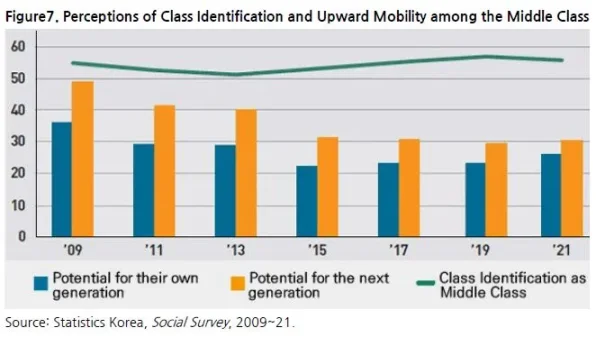
So, is it surprising that many of the world's largest "losers" are South Koreans? Think of Bill Hwang, Masayoshi Son, and Do Kwon. When traditional upward pathways are blocked, the only way to increase returns is to raise risks, which is super gambling, a future that is approaching everyone.
Long-term degeneracy is your college friend betting on sports; your relative trading options; you participating in online communities instead of real-life socializing. These trends reflect human nature under modern efficiency, pursuing the shortest-term return cycles.
AI will only accelerate long-term degeneracy, with the core logic being that the "window of success" is shrinking, and any new technological advancement will only make that window shorter.
While some may attempt to use this awareness to "save the world," this giant ship is heading for the rocks. Rather than trying to change course, it is better to ensure you have a safe position on the lifeboat.
What is Super Gambling?

Super gambling is high-risk behavior triggered by fear of an uncertain financial future.
Rather than trying to define it precisely, it is better to describe how it feels:
Imagine you are a new college graduate from a middle-class family.
If you don’t have student loans, many do. If you are lucky enough, you find a job with a salary over $100,000, but many do not. Even if you are fortunate, you still look up at sky-high asset prices (houses, stocks) and try to calculate how you might afford a home in 20 years, all while understanding that these assets will only continue to rise during that time.
You are surrounded by success stories (often false or survivor bias), and your attention is destroyed by TikTok and YouTube shorts. You have no patience or discipline to take the slow path.
So you start taking excessive risks with your monthly salary: cryptocurrencies, options, meme stocks, meme coins, sports betting. Your logic is: this little money will never buy a house, but if I win the bet, maybe it can. And if I lose, I just need to wait a week or two to start over.
This is super gambling, and if a significant portion of your net worth is invested in cryptocurrencies, congratulations, you are also super gambling.
Super gambling entered the public eye during the COVID-19 pandemic. In January 2020, Peter Thiel wrote in a letter to Mark Zuckerberg:
"From the perspective of a generation's broken contract, the answer seems simple: when a person is burdened with too much student debt or housing prices are out of reach, they will remain in a negative asset state for a long time or find it difficult to start accumulating capital in the form of real estate."
While he was discussing the socialist tendencies of millennials, this is just the other side of the same coin. Super gambling is the emergent anger, while socialism is the helpless response.
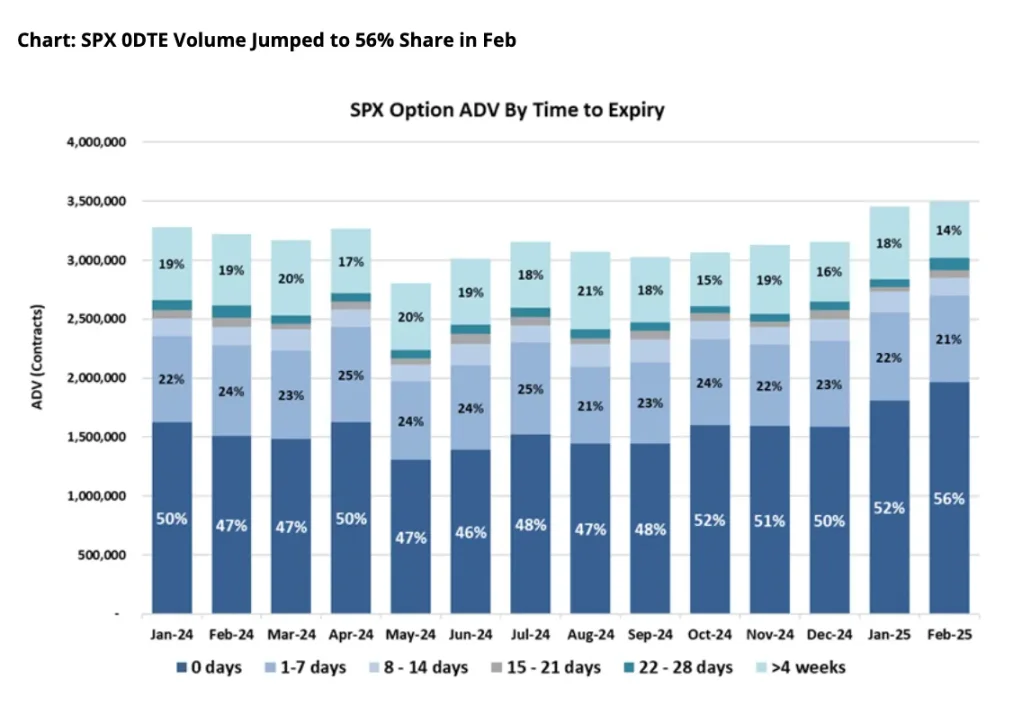
The core issue is the cost of home ownership and the expected timeline to achieve it based on average wages. When this social contract breaks down, people look for shortcuts. The rise of cryptocurrencies, meme stocks, options, and leveraged trading reflects the public's desire for volatility and asymmetric returns, as linear growth has become unaffordable for homeownership.
The downside of repeatedly engaging in high-risk investments is that many will fail. If you reach the end of the tunnel with nothing to show for it, you will be poorer than before.
Causes
Inequality is an obvious reason and runs through many causes. But before further discussion, it should be noted that, in the author's view, the current trend is a return to historical norms. The modern middle class emerged from post-World War II prosperity and global labor arbitrage. The traditional definition of the petite bourgeoisie specifically refers to owners of businesses and capital, while knowledge workers still belong to the working class. It is the anger at this compression of life that drives these issues to amplify.
Income Gap
A key factor is the increasing inequality between income and assets. It is not the ratio of the highest earners to the lowest, but the relationship between wages and housing prices.
As this trend worsens, the linear timeline (finding a regular job, saving to buy a house) will only grow longer until it becomes completely unfeasible. This reflects the compression of expected returns ("find a good job after college"), fundamentally driving people to pursue higher returns through higher-risk investments.
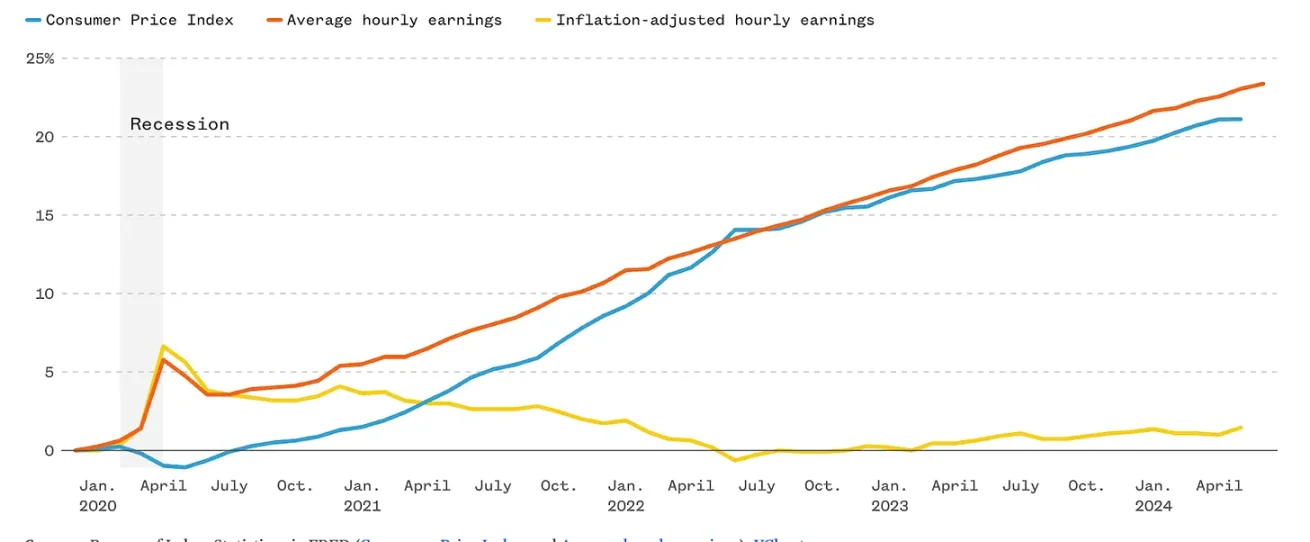
Rising Asset Prices / Denominator Approaching Zero
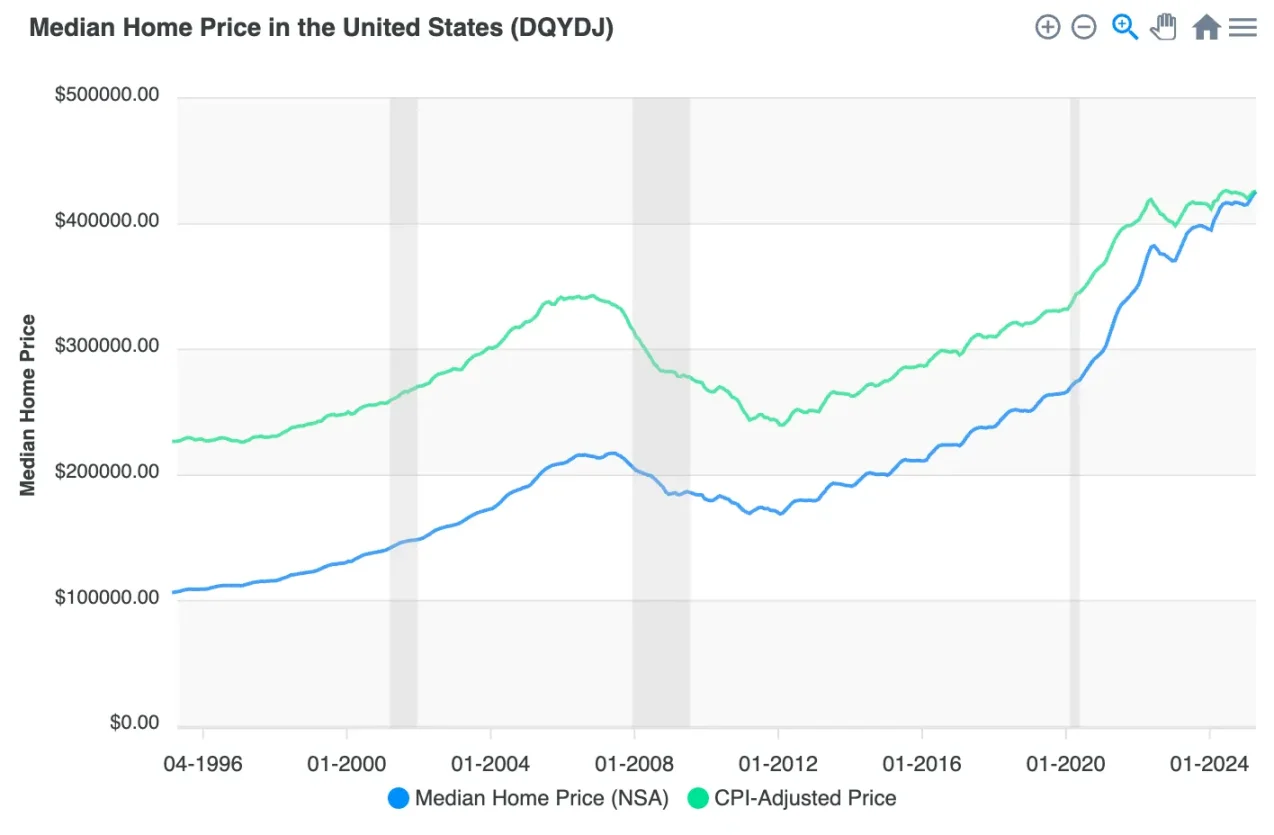
At the time of writing, housing prices, the S&P 500 index, and Bitcoin are all at historical highs.
Importantly, houses cannot be purchased in shares; you can only spend money on rent (or live at home) while saving. In the worst-case scenario, the speed of asset price increases outpaces the speed of savings, resulting in never being able to afford a home. This fear of "not being able to catch up" drives a higher risk appetite.
The other side of rising asset prices is the denominator approaching zero. The dollar has depreciated by 10% this year. In a world where consumers continue to experience rapid inflation, how much savings is enough? What can outpace future fiat currency inflation?

Relaxation of Gambling Speculation Regulations
The rules are written in blood and tears. Although the author may personally benefit from deregulation, he believes that the trend of gambling in the mass market is antisocial.
With the invention of sports betting, prediction markets, online casinos, 0DTE options, and the impending popularity of perpetual contracts, ordinary consumers can enter the world of degenerates with just a click.
This is not a good thing; many of us who have survived in the cryptocurrency space have merely happened to choose an asset class that increases tenfold every four years. But repeated high-risk financial opportunities can destroy dopamine receptors, disrupt the relationship between effort and reward, and leave people "completely unemployable."
Online Dating
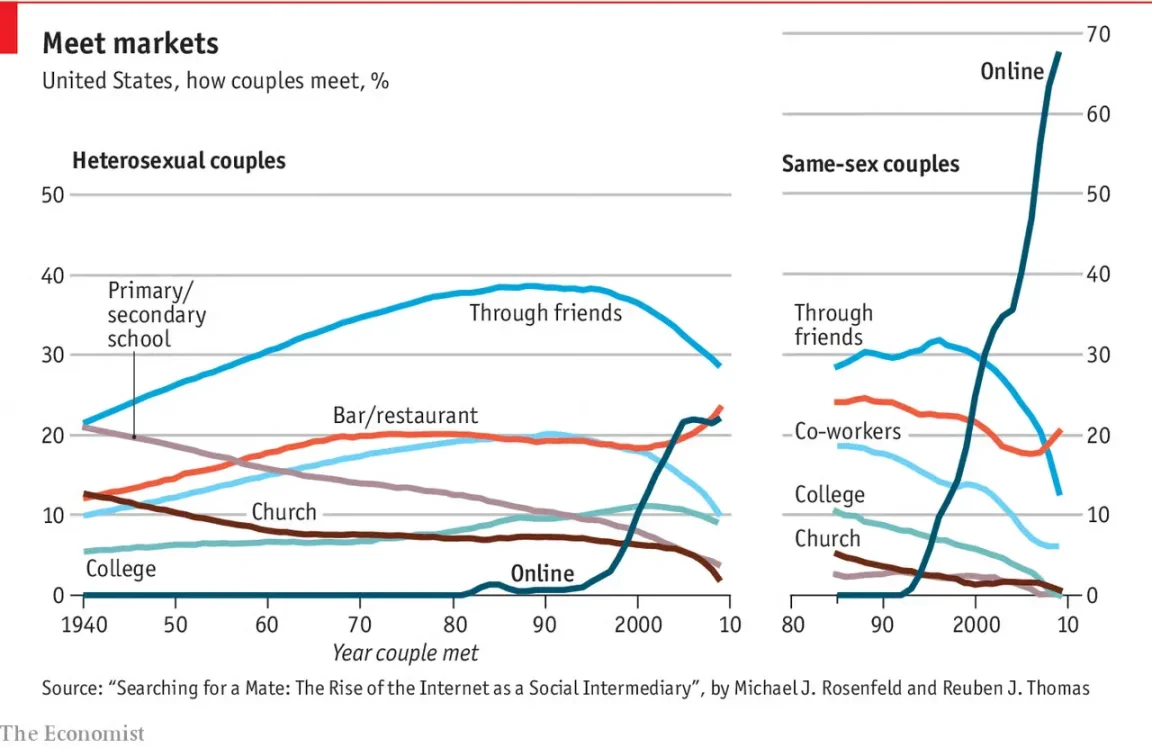
The rise of online dating has not only exacerbated the epidemic of loneliness.
It has also shaped the value of men, at least in how the market perceives male value. Online dating follows a power law distribution, where the top 1% of men receive disproportionate attention. A common way for men to enhance their market value is through wealth.
Even sex drives men to take on higher risks.
Note the inevitability of these causes: increasing income inequality, rising asset prices, increased speculation, and online dating. These trends will only intensify, and so will long-term degeneracy.
Short-term Effects
Cryptocurrency rises. Sports betting grows, and "buy now, pay later" becomes the norm. Savings decrease, attention spans shorten, and money becomes just a number on a screen. Discord becomes the new church, quasi-social relationships replace real ones. Birth rates decline, happiness decreases, resulting in further polarization into winners and losers.
Long-term Effects
Derivatives Devouring the World
Whether it is perpetual contracts, binary options (prediction markets are a form of binary options), or new tools, the more retail investors are exposed and adopt them, the more they cannot compete against the market.
Collapse of the Effort/Reward Model
Traders are the most affected profession. The work ethic of traders collapses at the first profit, how can they accept working 40 hours a week for a year, earning less than the numbers bouncing on the screen for 40 minutes?

Increasing Inequality
The ultimate result of many failures is that funds increasingly flow to the winners. Sadly, this further leads to a vicious cycle.
If universal basic income (UBI) is implemented in the future, it will push long-term degeneracy to new heights. Will it be a struggle to survive on meager allowances, or will it be a gamble for elite status? After all, if next month can start over, what loss is there in using this month's money to speculate?
This perspective has been my warning for the past decade. I attribute my miraculous recovery to an unwavering belief: "the world will only become more degenerate, financialized, speculative, lonely, tribal, and bizarre," but I have never turned things around through "deeper research," unless you count any speculation as research. Perpetual contracts, meme coins, and gambling are often negative expected value (-EV); if you continue to participate and lose money, you are a source of profit for others.
Find a way to follow the dealer's pace.
免责声明:本文章仅代表作者个人观点,不代表本平台的立场和观点。本文章仅供信息分享,不构成对任何人的任何投资建议。用户与作者之间的任何争议,与本平台无关。如网页中刊载的文章或图片涉及侵权,请提供相关的权利证明和身份证明发送邮件到support@aicoin.com,本平台相关工作人员将会进行核查。



